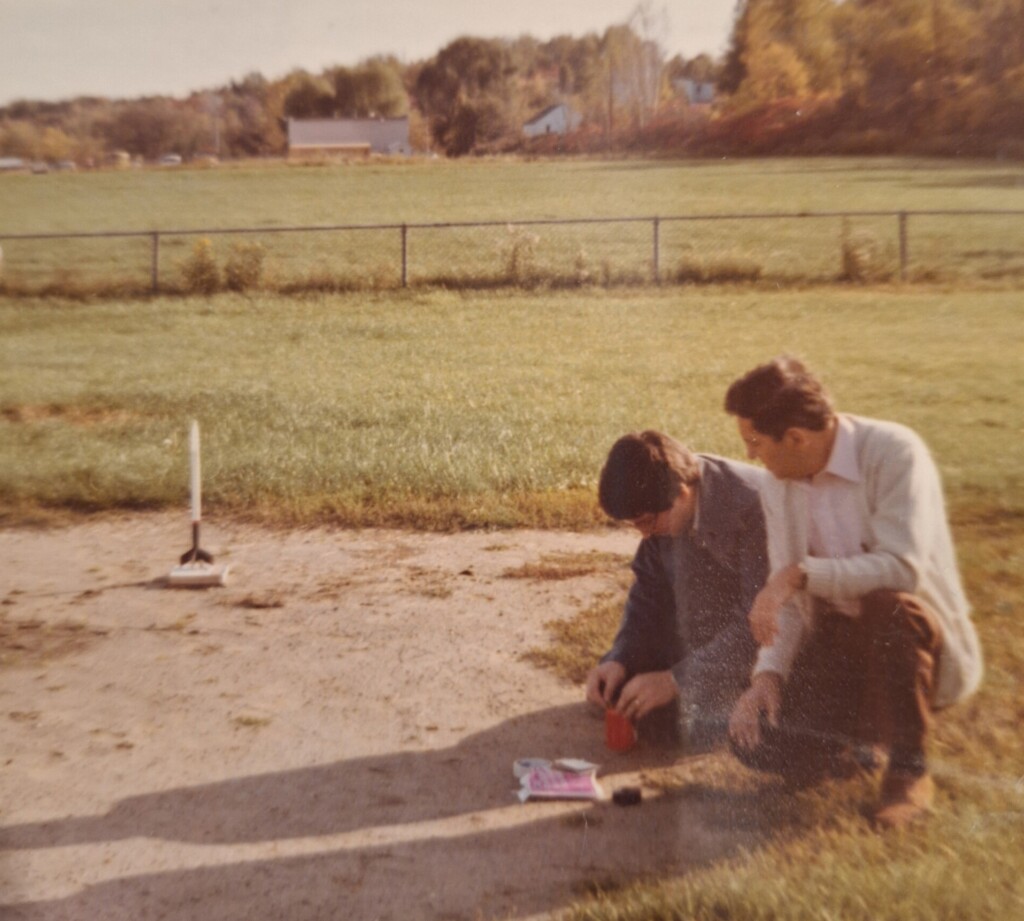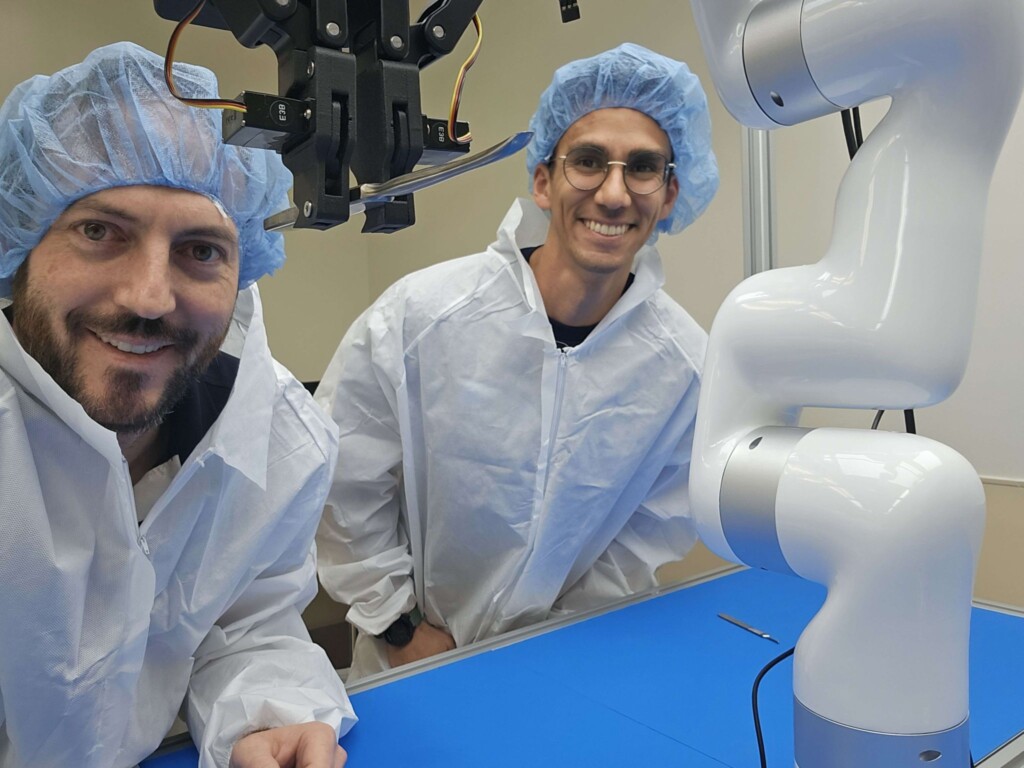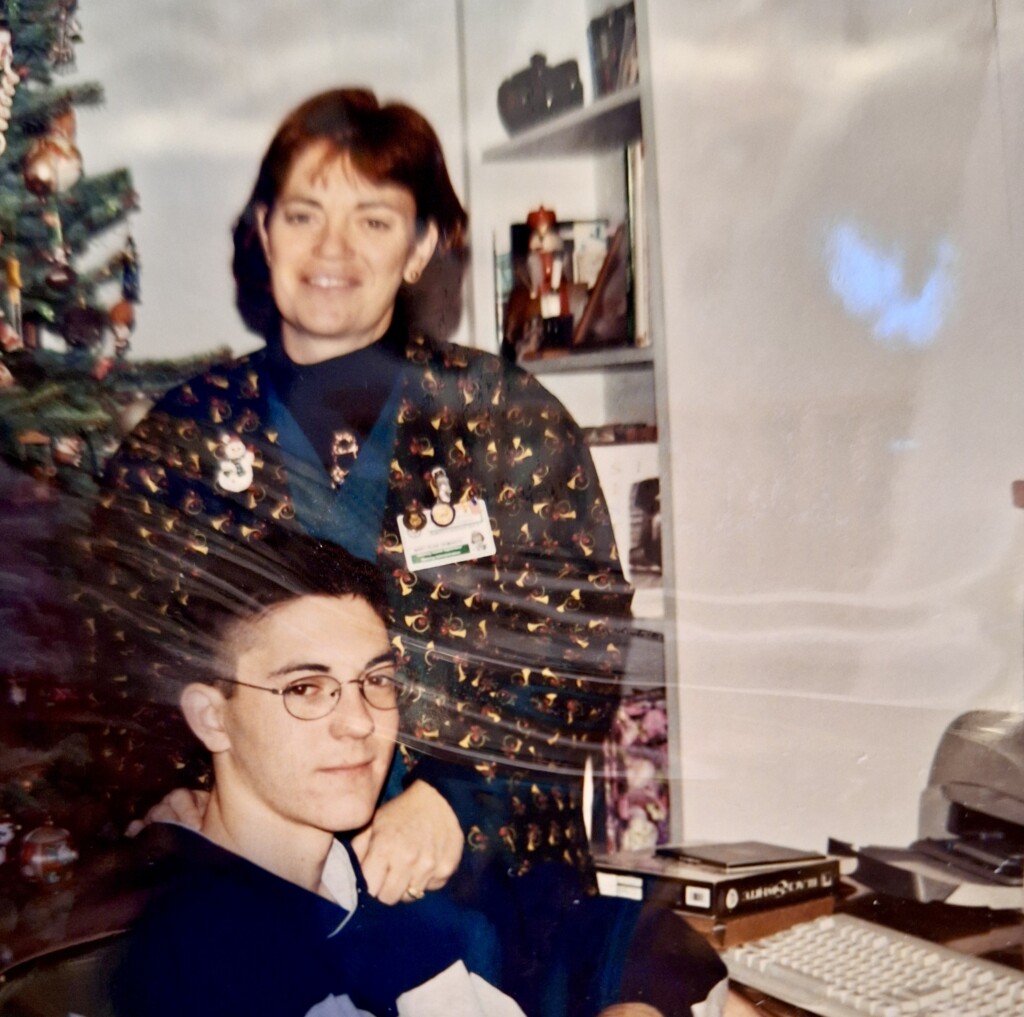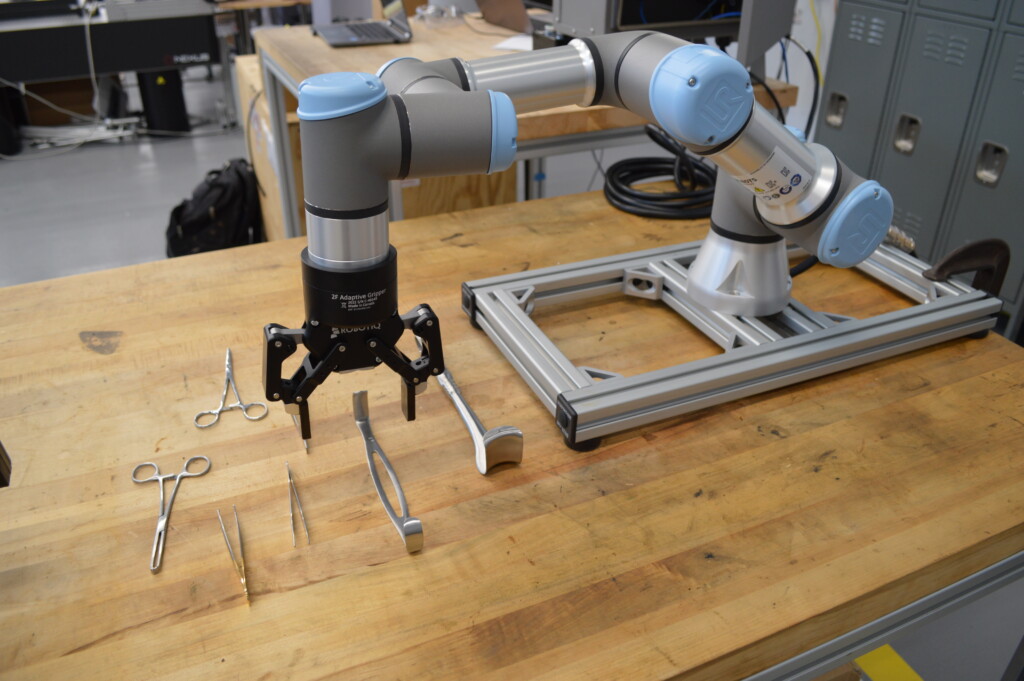

In the fast-evolving world of healthcare robotics, Kevin DeMarco, PhD, is a pioneer. DeMarco is reshaping hospital logistics with innovative automation solutions. He shares the sacrifices, inspirations, and visions driving his work at RIF Robotics. Also, find out his hidden talent and what uncommon tool he uses every day.
Q: What inspired you to pursue robotics as a child?
“I’ve always known I wanted to build things. Growing up, I spent hours taking apart motors and trying to understand how electricity worked. My grandfather, who was an engineer, ran a paper mill and would let me play around in his workshop. I was also fascinated by computers, even though I didn’t fully understand them as a kid. There was just something intriguing about figuring out how these complex systems worked. That curiosity has stayed with me, and I think that’s why I’m drawn to creating new things rather than just maintaining what already exists.”
Q: Have you ever felt limited or underestimated?
“One of the first times I felt that was when we started the company. A lot of people thought we wouldn’t succeed as engineers without a business background. People said, ‘You’re engineers; you can’t run a business.’ That skepticism has only motivated us to prove them wrong. It’s become a bit of a rallying point for us, and I think we’re doing pretty well so far.”
Q: How has Catalyst impacted your journey?
“Catalyst has been instrumental. They’ve helped us refine our value proposition and have provided essential credibility, especially with investors who aren’t as familiar with healthcare. Early validation from Catalyst has been crucial in proving that our solution addresses real problems in the industry. Their understanding of healthcare logistics has also helped us navigate the unique challenges that come with working in this space, from security to contract structures.”
Q: What gives you inspiration today?
“Building new products with advanced technology is what inspires me—taking mathematical ideas and bringing them to life in the real world. Robotics is incredibly rewarding because you’re creating something tangible that has an impact. I love working with robots and programming them to solve real-world problems, especially in a field as impactful as healthcare.
Q: What’s been the biggest sacrifice you’ve made starting or running your business?
“The biggest sacrifice? It’s not so much about any one thing but more about learning to live with the constant discomfort and uncertainty. In a startup, especially in an industry as high-stakes as healthcare robotics, you’re always making big decisions without complete information, and that requires a lot of faith in the process. Being comfortable with discomfort—knowing things could shift at any moment—that’s something I had to accept early on.”
Q: What’s been the scariest part of the journey?
“Before this, I worked in academia, which is generally low-risk. You have a reliable path, a certain stability, and you know what to expect. Starting a company, however, meant stepping into a completely different world where I’d be responsible not only for my livelihood but for my team and for securing funding in a very competitive environment. One of the scariest parts was leaving behind the stability of academia, where things were safe and predictable, for the volatility of a startup, where some days you’re asking yourself, ‘How are we going to make this work?’ It’s a huge mindset shift.”

Kevin DeMarco, PhD, and Sergio Garcia, PhD.
Q: Can you give an example of a particularly challenging moment?
“Sure. Bringing a brand-new product to market is a challenge in itself. Often, you’re not only developing something from scratch, but you’re also educating people about a problem they may not even realize they have. Then comes the real test: seeing if the market values your solution enough to pay for it. That’s when things get scary because even if you’re confident your product represents the future, convincing others of that vision is an uphill battle. In the early stages, you’re often met with skepticism, which makes the leap even more daunting.”
Q: How do you define success for yourself and for RIF Robotics?
“For me, success is about finding meaning in the work I do every day. It’s a combination of doing something I enjoy and creating something that has a positive impact. I’m driven by problem-solving, especially when the solutions I’m working on help people in real, measurable ways. That’s why we chose healthcare as our focus. I truly believe that healthcare is where we should be dedicating our time, energy, and resources—it’s a field where the work has a lasting effect on people’s lives. Building something that actually makes a difference in this industry is the core of my vision for success.”
Q: It sounds like healthcare has had a big influence on you?
“Definitely. My mom, aunt, and uncle were all in healthcare, so I grew up surrounded by conversations about patient care, hospital work, and the unique challenges that come with it. There’s this interesting mix of caregiving and complex logistics in healthcare and seeing my family handle both inspired me. As I got more involved in robotics, I saw an opportunity to address some of those logistical challenges in hospitals so that healthcare workers could focus more on patient care. That realization really motivated me to start a robotics company focused on healthcare.”

Q: How do you handle moments of self-doubt?
“Self-doubt is part of the territory in any startup. One of our weaknesses, as a company, is that we don’t always stop to celebrate our wins. I’m often so focused on what’s next that I forget to acknowledge what we’ve accomplished. Luckily, one of my co-founders is great at reminding us to pause and celebrate. When we close a big investment round, for example, we’ll go out, rent bikes or scooters, and ride around Atlanta’s Beltline, stopping at different restaurants or bars. It’s our little ritual for taking a break and recognizing how far we’ve come before we dive back into the work.”
Q: What’s a success you’re especially proud of?
“I’d say that one of our biggest successes has been gaining traction and respect as first-time founders, which isn’t easy. In the last year and a half, we’ve managed to secure partnerships with major global companies like Mitsubishi Electric, which supplies us with robotic arms and other hardware. Having a big player like that believe in our vision feels like a huge accomplishment. We also have large medical device companies reaching out to explore future collaborations. But at the same time, we know there’s still a lot of work to be done. Until we establish solid product-market fit, we can’t consider ourselves truly successful, even with these early wins.”

Q: Looking back, is there anything you would do differently?
“Not too much, honestly. One of the things that helped me transition out of academia was consulting for other robotics startups, which I did while we were bootstrapping RIF. I learned a lot from some very high-quality CEOs running small, agile companies. That experience gave me insight into the practicalities of running a robotics business, and I think it prepared me well. There’s no real shortcut to building trust and proving yourself, and those early consulting gigs were an important part of my journey.”
Q: What’s the long-term vision for RIF Robotics?
“Our ultimate vision for RIF is to build the ‘hospital of the future,’ where robotics, computer vision, and AI streamline logistics so that doctors and nurses can focus solely on patient care. In a way, we want to become the Amazon Robotics of hospitals, where everything just works seamlessly in the background, enabling healthcare providers to deliver the best care possible.”
Q: Is there a daily ritual or tool you rely on?
“This might sound nerdy, but I rely on Emacs, an old-school text editor that’s actually older than I am. I’ve been customizing it for the last 15 years, so it’s become a personal toolkit of sorts. Among programmers, there’s this long-running ‘editor war’ between Emacs and VI. You’ll even see jokes about it in nerdy movies and TV shows. But for me, it’s the backbone of my daily work, and it has become something of a ritual.”
Q: What’s your favorite film?
“The Big Lebowski” is one I can watch over and over. I love the laid-back attitude of ‘The Dude,’ the main character. He’s totally relaxed, enjoying his life, and doesn’t let anyone push him around. It’s almost the opposite of my personality, which is maybe why I enjoy it so much. The dialogue is brilliant, and the characters are memorable.”
Q: What’s currently on your music playlist?
“I’m a big music fan and even play in a band called Minutes of Hours. Lately, I’ve been listening to Tame Impala, and I’m really excited to see Cake in concert soon. Our band’s music is inspired by the passage of time, and we lean into that theme with our songs. When I upload our music to Spotify, it even recommends similar bands, like Umphrey’s McGee, which is flattering since they’re a great jam band. Music is a huge part of my life, and it’s something that keeps me grounded.”
Q: If you could collaborate with anyone, who would it be?
“Paul Graham, the startup advisor, would be an incredible collaborator. He has this unique understanding of startups and disruptive technology, and I’ve read a lot of his blog posts. He’s seen countless companies succeed and fail, and that kind of experience would be invaluable to learn from. I think he has a rare perspective that could really help guide us.”
Q: What’s the best advice you’ve received?
“The best advice I’ve received is that the most valuable things are usually the hardest to achieve. No one can hand you a shortcut to success; you have to work hard, make sacrifices, and keep pushing forward even when it’s tough. If I didn’t go through the hard work of building something from the ground up, I think I’d feel incomplete. That journey, with all its challenges, is what brings fulfillment.”